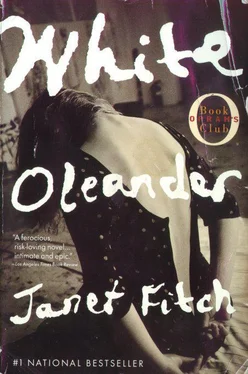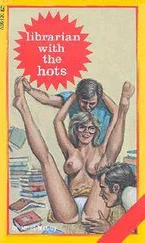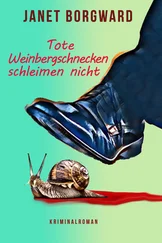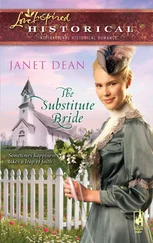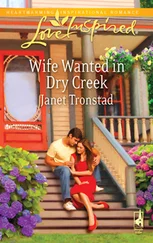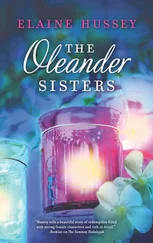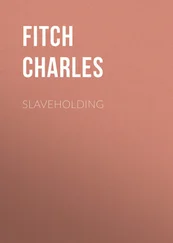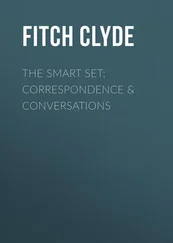Janet Fitch - White Oleander
Здесь есть возможность читать онлайн «Janet Fitch - White Oleander» весь текст электронной книги совершенно бесплатно (целиком полную версию без сокращений). В некоторых случаях можно слушать аудио, скачать через торрент в формате fb2 и присутствует краткое содержание. Жанр: Современная проза, на английском языке. Описание произведения, (предисловие) а так же отзывы посетителей доступны на портале библиотеки ЛибКат.
- Название:White Oleander
- Автор:
- Жанр:
- Год:неизвестен
- ISBN:нет данных
- Рейтинг книги:3 / 5. Голосов: 1
-
Избранное:Добавить в избранное
- Отзывы:
-
Ваша оценка:
- 60
- 1
- 2
- 3
- 4
- 5
White Oleander: краткое содержание, описание и аннотация
Предлагаем к чтению аннотацию, описание, краткое содержание или предисловие (зависит от того, что написал сам автор книги «White Oleander»). Если вы не нашли необходимую информацию о книге — напишите в комментариях, мы постараемся отыскать её.
White Oleander — читать онлайн бесплатно полную книгу (весь текст) целиком
Ниже представлен текст книги, разбитый по страницам. Система сохранения места последней прочитанной страницы, позволяет с удобством читать онлайн бесплатно книгу «White Oleander», без необходимости каждый раз заново искать на чём Вы остановились. Поставьте закладку, и сможете в любой момент перейти на страницу, на которой закончили чтение.
Интервал:
Закладка:
The vintage-dress girl stood up, squinting into the sun, her eyes the same gray as her dress, freckles. She smiled uncertainly when I got out of the truck. “Are you Astrid Magnussen?” she asked.
I hauled a garbage bag full of folded clothes out of the passenger seat, lifted another from the bed in the back. “Who wants to know?”
“I’m Hannah,” she said. “This is Julie.”
The other girl smiled too, but not as widely.
I never saw them before. They sure didn’t go to Marshall, and they were too young to be social workers. “Yeah, and?”
Hannah, pink-cheeked with embarrassment, looked over at dark-haired Julie for encouragement. Suddenly, I became aware of what I must seem like to them. Hard, street. My eyeliner, my black polyester shirt, my heavy black boots, my cascade of silver earrings, hoops from pinkie-sized to softball. Niki and Yvonne had pierced my ears one day when they were bored. I let them do it. It pleased them to shape me. I’d learned, whatever you hung from my earlobes or put on my back, I was insoluble, like sand in water. Stir me up, I always came to rest on the bottom.
“We just came to meet you, to see, you know, if there was anything we could do,” Hannah said.
“We know your mother,” Julie said. She had a deeper voice, calmer. “We visit with her in Corona.”
Her children. Her new children. Stainless as snowdrops. Bright and newborn. Amnesiac. I had been in foster care almost six years now, I had starved, wept, begged, my body was a battlefield, my spirit scarred and cratered as a city under siege, and now I was being replaced by something unmutilated, something intact?
“We’re at Pitzer College, out in Pomona. We studied her in Women’s Studies. We visit her every week. She knows so much about everything, she’s really incredible. Every time we go she just blows us away.”
What was my mother thinking, sending these college girls? Was she trying to grind me into talc, flour for some bitter bread? Was this the ultimate punishment for my refusal to forget? “What does she want from me?”
“Oh, no,” Hannah said. “She didn’t send us. We came on our own. But we told her we’d send you a copy of the interview, you know?” She held up a magazine she had rolled in her hands, blushed deeply. In a way, I envied that blush. I couldn’t blush like that anymore. I felt old, gnawed pliant and unrecognizable as a shoe given to a dog. “And then we thought, you know, now that we knew where you lived, we could—” She smiled helplessly.
“We thought we’d come and see if we could help you or something,” Julie said.
I saw that I scared them. They thought my mother’s daughter would be something else, something more like them. Something gentle, wide-open. That was a riot. My mother didn’t scare them, but I did.
“Is that it?” I asked, holding out my hand for the magazine.
Hannah tried to straighten out the curl of the magazine on her flowered knee. My mother’s face on the cover, behind chicken wire, on the phone in the seclusion room. She must have done something, usually you get to be at the picnic tables. She looked beautiful, smiling, her teeth still perfect, the only lifer at Frontera with perfect teeth, but her eyes looked weary. Contemporary Literature.
I sat down next to Julie on the splintered front steps. Hannah took a seat a step down, her dress flowing in a curve like an Isadora Duncan dance step. I opened the piece, flipped through it. My mother’s gestures, flat of palm to forehead, elbow on the ledge. Head against the window, eyes downcast. We are larger than biography. “What do you talk about with her?” I asked.
“Poetry.” Hannah shrugged. “What we’re reading. Music, all kinds of things. She sometimes talks about something she saw on the news. Stuff you wouldn’t even think twice about, but she gets some take on it that’s just incredible.”
The transformation of the world.
“She talks about you,” Julie said.
That was a surprise. “What’s she say about me?”
“That you’re in a, you know. Home. She feels terrible about what’s happened,” Hannah said. “For you most of all.”
I looked at these girls, college girls, with their fresh makeup-less faces, trusting, caring. And I felt the gap between us, all the things I wouldn’t be because I was who I was. I was graduating in two months, but I wasn’t going to Pitzer, that was for sure. I was the old child, the past that had to be burned away, so my mother, the phoenix, could emerge once again, a golden bird rising from ash. I tried to see my mother through their eyes. The beautiful imprisoned poetic soul, the suffering genius. Did my mother suffer? I forced myself to imagine it. She certainly suffered when Barry kicked her out of his house that day, after sleeping with her. But when she killed him, the suffering was somehow redeemed. Was she suffering now? I really couldn’t say.
“So you thought you’d come out and what?” I asked. “Adopt me?”
I laughed but they didn’t. I’d grown too hard, maybe I was more like my mother than I thought.
Julie gave Hannah a “told you so” look. I could see this had been the sandy girl’s idea. “Yeah, well, sort of. If you wanted.”
Their sincerity so unexpected, their sympathies so misplaced. “You don’t think she killed him, do you,” I said.
Hannah shook her head, quickly. “It’s all been a terrible mistake. A nightmare. She talks all about it in the interview.”
I was sure she had. She was always at her best with an audience. “Something you should know,” I told her. “She did kill him.”
Hannah stared at me. Julie’s gaze fled to her friend. They were shocked. Julie stepped protectively toward her gauzy friend, and I felt suddenly cruel, like I’d told small children there was no tooth fairy, that it was just their mom sneaking into their room after they went to bed. But they weren’t small children, they were women, they were admiring someone they didn’t know the first thing about. Look at the hag Truth for once, college girl.
“That’s not true,” Hannah said. Shook her head, shook it again, as if she could clear my words out of it. “It isn’t.” She was asking me to tell her it wasn’t.
“I was there,” I told her. “I saw her mix up the medicine. She’s not what she seems.”
“She’s still a great poet,” Julie said.
“Yes,” I say. “A killer and a poet.”
Hannah played with a button on the front of her gray dress, and it popped off in her hand. She stared at it in her palm, her face stained red as beet borscht. “She must have had her reasons. Maybe he was beating her.”
“He wasn’t beating her,” I said. I put my hands on my knees and pushed myself into a standing position. I felt suddenly very tired. Maybe there was still some stash in Niki’s room.
Julie looked up at me, brown eyes serious and calm. I would have thought her more sensible than Hannah, less likely to have been taken in by my mother’s spell. “Why’d she do it, then?”
“Why do people kill people who leave them?” I said. “Because they feel hurt and angry and they can’t stand that feeling.”
“I’ve felt that way,” Hannah said. The lowering light of the sun was touching the curly escaped ends of her hair, making a frizzy halo around her fair head.
“But you didn’t kill anyone,” I said.
“I wanted to.”
I looked at her, twisting the hem of her vintage dress with the small flowers, the front gapping open where the button fell off, her stomach was rosy. “Sure. Maybe you even fantasized about how you would do it. You didn’t do it. There’s a huge difference.”
A mockingbird sang in the yucca tree next door, a spill of liquid sound.
“Maybe not so big a difference,” Julie said. “Some people are just more impulsive than others.”
Читать дальшеИнтервал:
Закладка:
Похожие книги на «White Oleander»
Представляем Вашему вниманию похожие книги на «White Oleander» списком для выбора. Мы отобрали схожую по названию и смыслу литературу в надежде предоставить читателям больше вариантов отыскать новые, интересные, ещё непрочитанные произведения.
Обсуждение, отзывы о книге «White Oleander» и просто собственные мнения читателей. Оставьте ваши комментарии, напишите, что Вы думаете о произведении, его смысле или главных героях. Укажите что конкретно понравилось, а что нет, и почему Вы так считаете.
